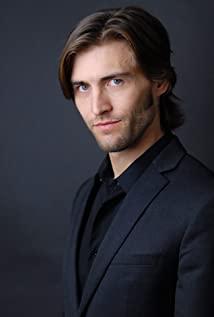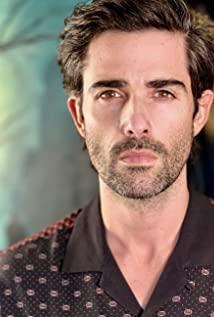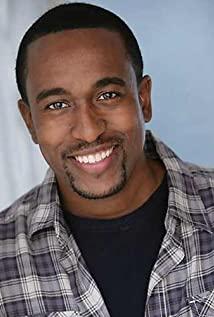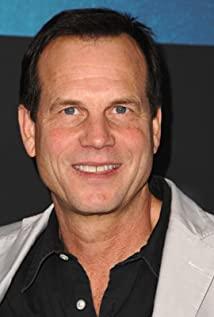1. Rick: The human nature of good and evil is lost
in the portrayal of Rick. The success of the film is that it does not portray him as a good young man full of positive energy, full of sense of justice, and resolute in the face of sin. But a kind-hearted, ordinary person who is forced by reality. In this way, it can be closer to the heart of the viewer, after all, perfect incarnations are rare. Among them, two details were handled particularly prominently:
one was the shock and compromise when it was discovered that Louis was deliberately "fishing". At the beginning, he was extremely surprised, feeling that what Louis said and did was unbelievable, and he even yelled impulsive. But no matter how he denied Louis' cold and terrifying, he never abandoned the car, or even had the slightest idea of giving up cooperation. Although he completely denies Louis' behavior, in his heart, a step-by-step compromise has begun, and the means of his compromise has returned to the starting point of desire - adding money. He kept explaining that Louis taught him to bargain, but when he thought about it, he was deceiving himself. His heart has been inclined towards the latter under the balance of good and evil, and Lewis is just an excuse for his evil to dispel the guilt of his own change in human nature.
The second is about Lewis' strong denial and speechlessness to his warning before his death. When he was framed to death by Louis, he was indignant, continuing to deny Louis' personality and scolding him for his madness. But when Louis said righteously: "I am the future you", he was speechless and repeatedly confided: "I don't know". I thought that there was a bit of the director's intention here. Rick had already been murdered by Louis, how could he think so deeply about life in the few minutes of his death? Maybe yelling and cursing are more in line with the situation. But this is also the need to serve the purpose. The director used Rick's mouth to express the voice of the public. In the face of Lewis' refutation, each of us seems to be unable to find a sufficient reason to refute, "don't know" becomes the best The answer reflects the loss of human nature in the resistance.
In a way, Rick is Lewis' predecessor. They have a common original intention - both to find a career and earn capital for survival. However, the director did not present Lewis's past one by one in a biographical narrative technique to avoid disrupting the tight rhythm of the entire film. To make up for this, Rick became the predecessor of Louis' "green goodness". Just imagine, if the life trajectories of Rick and Louis are connected, it happens to form a very complete chain of human growth, and also finds the answer to the slightly abrupt criminal act of stealing barbed wire and beating security guards at the beginning of the movie - Louis The reason for this is because, like Rick at first, he had an urgent need for money, but because of the current situation, he gradually embarked on the path of evil that violated morality from the starting point of goodness.
2. Nina: The true and false nature reveals that
Nina has been a "market theorist" from the very beginning. Her only purpose is to increase the ratings and keep her job. The director did not give her too much kindness, but put more ink on the process of how to expose her inherent hypocrisy, so that her hypocrisy was completely disintegrated in the waves of Louis's offensive.
She has a decent status, and she influences all the news reports on the TV station. She is well-dressed and full of easy-to-follow survival rules, just like a battle-hardened winner. But in the face of Louis' step-by-step approach, her workplace principles are losing ground in the face of interests, and her psychological defense line is disintegrating in the face of desire. In fact, as a wicked person, Nina is not as good as Louis: Louis is completely bad and evil, but she always tries to cover up her sins with the cloak of morality, and she is a hypocritical hypocrite.
In Nina, the director tries to focus on the opposition between true and false nature. Every time she confronts Louis, a layer of her hypocrisy is torn apart: from her views on TV news, to her anxiety about ratings, to her madness about her own survival, correspondingly, she is also in front of Louis. From a condescending attitude to an embarrassing embarrassment, and then a hysterical nakedness, he finally became a raccoon dog with Louis. In the end, her nature is no longer the small evil under the surface of hypocrisy, but the naked evil.
3. Lewis: The real torture of beauty and ugliness
Lewis is the focus of the story. Even ordinary viewers who don't know much about it can strongly feel the strong realistic criticism of the film, which portrays the image of a mercenary freelance reporter to the bottom of the tree. But I think that what the director places on him is not only the change of individual human nature, but the reflection of the whole society. The film specially arranges two plots to highlight his social symbolism:
one is his confrontation with the police. The winner, of course, is Louis. In fact, if the shooting level of the "CSI" series and "Criminal Minds" is used, I think Lewis will be able to be brought to justice. But the director downplayed the theme of justice defeating evil, and instead let the wicked win, because today's reality more needs to expose the ugliness of society, rather than make up the beauty of the world. Letting Louis win this cat-and-mouse game is more thought-provoking than putting him in jail.
The second is the success of his career. The film ends with Lewis giving his new employee an inspiring teaching, which is a great irony in itself. In the picture, his speech is so decent, his words are so charismatic, the employees listen to his promises with smiles, accept the influence of this moral culture, everything seems to be extraordinarily beautiful. When the two newly purchased interview vans drove to all directions of the city and entered our lives, we all thought, what kind of truth will they bring us? Against all the seemingly beautiful background, what really shows is the almost absurd ugliness of society, but we can do nothing about it, and our life is still involuntarily accepted by the media's interests.
After watching the movie, I deeply felt the ugly and dark side of reality, and I couldn't help but recall the news I watched on weekdays, whether there were hidden secrets that were completely different and shameful to be known. I can't help asking myself: When the camera loses its temperature, where do we go to find truth?
View more about Nightcrawler reviews











